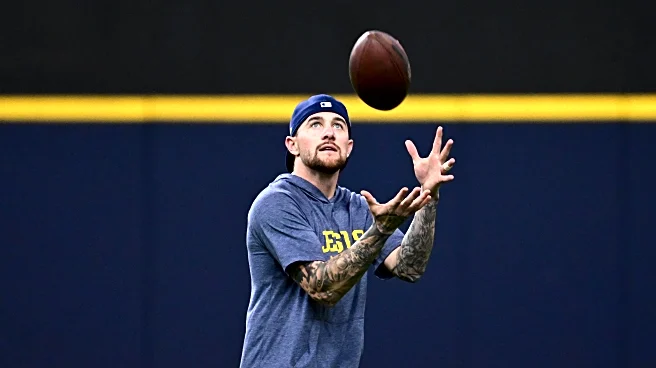Rapid Read • 8 min read
A recent cross-sectional study has examined the glycemic variability following various bariatric surgery (BS) procedures, comparing them to a non-operated group. The study highlights that increased glycemic variability post-surgery is linked to significant fluctuations in postprandial glucose levels, leading to both hyperglycemia and hypoglycemia. This variability is attributed to differences in intestinal nutrient entry rates and entero-pancreatic hormone secretion. The study specifically contrasts procedures like Roux-en-Y gastric bypass (RYGB) and biliopancreatic diversion with duodenal switch (BPD-DS), noting that these surgeries result in distinct anatomical reconstructions that impact glycemic control. The research also introduces a new tool, Gluc4all, for analyzing continuous glucose monitoring (CGM) data, which could help replicate these findings in future studies.
AD
The findings of this study are significant for the medical community and patients considering bariatric surgery. Understanding the glycemic variability associated with different surgical procedures can inform patient management and post-operative care, potentially reducing the risk of hypoglycemia. This research could influence surgical decision-making, guiding healthcare providers in selecting the most appropriate procedure based on a patient's specific metabolic needs. Additionally, the introduction of the Gluc4all tool offers a new method for analyzing glucose data, which could enhance research and clinical practices related to diabetes and metabolic disorders.
Future research is needed to explore the long-term clinical impacts of the observed glycemic variability and to validate the findings across larger and more diverse populations. The study suggests that further investigation into the role of entero-pancreatic hormones and their influence on post-surgical glycemic control is warranted. Additionally, the Gluc4all tool's application in clinical settings could be expanded, potentially improving patient outcomes through more precise monitoring and management of glucose levels post-surgery.
The study raises questions about the ethical considerations of patient consent and education regarding the potential risks of glycemic variability after bariatric surgery. It also highlights the need for personalized medicine approaches in surgical interventions, considering individual patient profiles and potential metabolic responses. The findings could lead to a reevaluation of current bariatric surgery guidelines and practices, emphasizing the importance of comprehensive pre-surgical assessments and tailored post-operative care plans.
AD
More Stories You Might Enjoy











